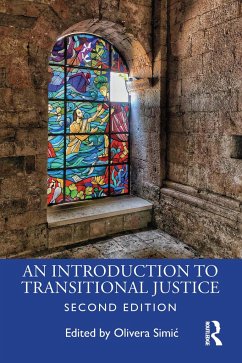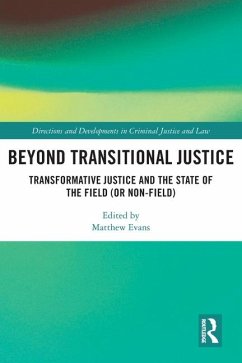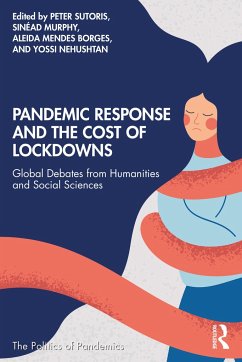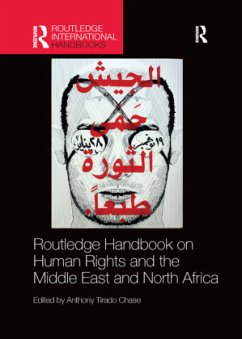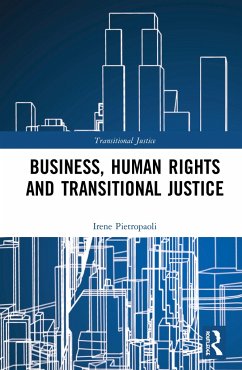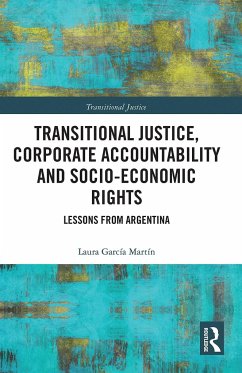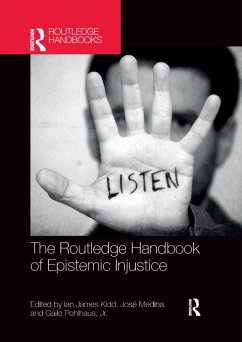
Beyond Evidence
The Use of Archives in Transitional Justice
Herausgegeben: Viebach, Julia; Hovestädt, Dagmar; Lühe, Ulrike
Versandkostenfrei!
Versandfertig in 6-10 Tagen
45,99 €
inkl. MwSt.
Weitere Ausgaben:

PAYBACK Punkte
23 °P sammeln!
Drawing on conceptual debates in transitional justice and critical archival studies, as well as empirical cases from various countries around the world, the contributions in this book critically examine how archives are produced by and used in transitional justice processes such as tribunals, truth commissions and remembrance processes.This edited volume provides conceptual critiques of the transitional justice paradigm and innovations in providing a new lens on archival practices in transitional justice. In doing so it offers in-depth analyses of the relationship between archives and transiti...
Drawing on conceptual debates in transitional justice and critical archival studies, as well as empirical cases from various countries around the world, the contributions in this book critically examine how archives are produced by and used in transitional justice processes such as tribunals, truth commissions and remembrance processes.
This edited volume provides conceptual critiques of the transitional justice paradigm and innovations in providing a new lens on archival practices in transitional justice. In doing so it offers in-depth analyses of the relationship between archives and transitional justice in France, Colombia, Rwanda, South Africa and Northern-Ireland; it highlights truth commission and (international) court archives as much as personal collections and oral histories. The authors bring critical archival studies into dialogue with transitional justice discourses to highlight the activism and emancipatory potential but also the possibilities of injustices inherent in archives and archival practice.
Crucially, the book goes beyond merely highlighting the evidentiary value of archives by linking them to a multitude of transitional justice processes, goals and ideals, including remembrance processes, witnessing, reconciliation, non-recurrence, and various struggles against injustices and prevalent violence. This collection contributes to and expands our understanding of archives in transitional justice and critically questions core assumptions being made about the inherently positive contributions archives and records make to dealing with a violent past.
The chapters in this book were originally published as a special issue of The International Journal of Human Rights.
This edited volume provides conceptual critiques of the transitional justice paradigm and innovations in providing a new lens on archival practices in transitional justice. In doing so it offers in-depth analyses of the relationship between archives and transitional justice in France, Colombia, Rwanda, South Africa and Northern-Ireland; it highlights truth commission and (international) court archives as much as personal collections and oral histories. The authors bring critical archival studies into dialogue with transitional justice discourses to highlight the activism and emancipatory potential but also the possibilities of injustices inherent in archives and archival practice.
Crucially, the book goes beyond merely highlighting the evidentiary value of archives by linking them to a multitude of transitional justice processes, goals and ideals, including remembrance processes, witnessing, reconciliation, non-recurrence, and various struggles against injustices and prevalent violence. This collection contributes to and expands our understanding of archives in transitional justice and critically questions core assumptions being made about the inherently positive contributions archives and records make to dealing with a violent past.
The chapters in this book were originally published as a special issue of The International Journal of Human Rights.





